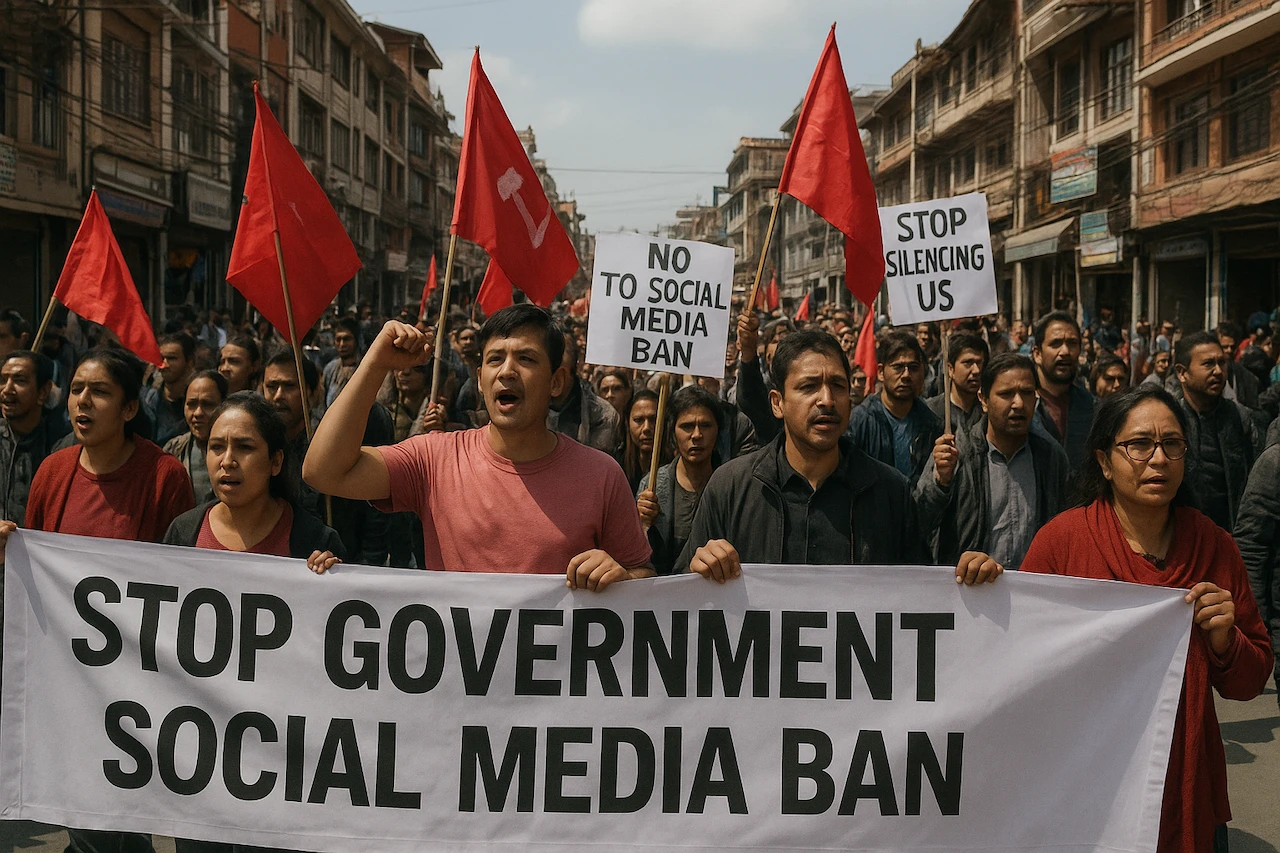GloNews10

Nepal social media restrictions have triggered widespread Nepal protests and raised global concerns about online freedom. The government’s sudden move to block platforms like Facebook, YouTube, and X (Twitter) has drawn strong criticism from citizens, activists, and the international community.
The Nepal government claims that social platforms were being used to spread misinformation and incite violence. However, many argue that Nepal social media restrictions are an attempt to silence critical voices and limit online freedom. This has only intensified Nepal protests across major cities, with people demanding digital rights and free expression.
Thousands of Nepalese citizens have joined Nepal protests, calling for an immediate rollback of these restrictions. According to reports, the protests have led to unfortunate clashes, resulting in multiple casualties. Human rights groups warn that such Nepal social media restrictions not only suppress free speech but also isolate Nepal from the global digital ecosystem.
The issue has sparked worldwide debate. Organizations like Amnesty International and news outlets such as BBC have condemned the restrictions. Global experts believe that Nepal protests highlight a growing trend where governments are using digital control to curb online freedom.
The youth, who are the largest users of digital platforms, feel the strongest impact. Many students and entrepreneurs rely on these platforms for education, networking, and business. Nepal protests reflect their frustration at being cut off from essential online tools and their demand for restoring online freedom.
While the government defends its decision, the Nepal protests show that people are unwilling to accept restrictions that threaten their online freedom. The coming weeks will determine whether Nepal social media restrictions remain in place or if public pressure leads to change.